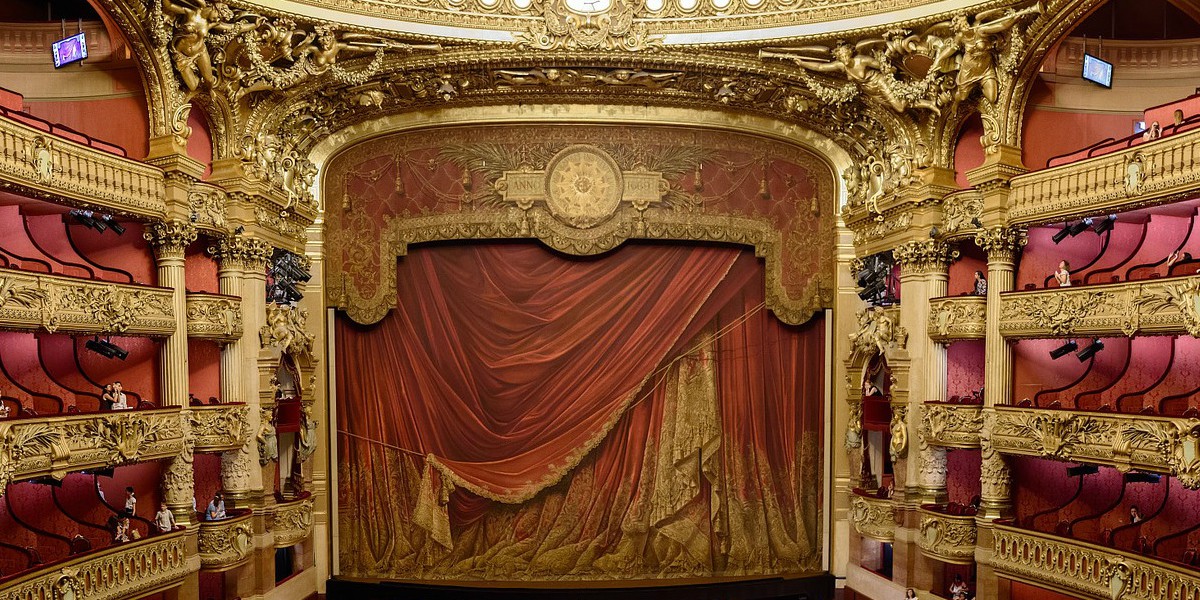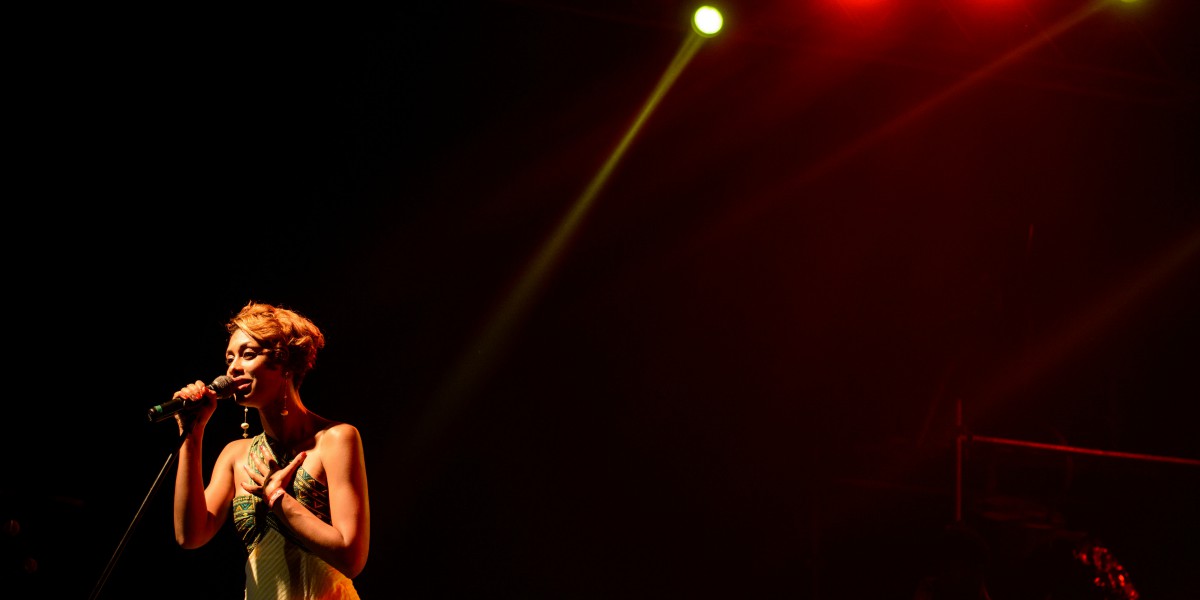When you’re an actor, it’s natural to look for good signs in an audition. Did the director smile? How did the other people at the table behave?
To some extent, you can read the signs to figure out how your audition went. Obviously, a genuine smile is better than a “get the hell out of here, you talentless hack”. But. Mostly, the signs are difficult, if not impossible to read.
You might also like:
- How to Nail a Musical Audition: 7 Insider Tips from a Director
- What to Wear to an Audition for a Musical
- How to Audition for Shakespeare when You Only do Musical Theater
- How to Audition for a Musical When You Can’t Sing
Why? Every director and casting agent is different.
One director might take notes constantly when they love your audition; another might only scribble notes when they hate your audition.
Top photo courtesy of Theme Park Tourist under CC BY 2.0
Breaking Down a Director’s Audition Behavior
First of all: director behaviors are not always a good indicator of how an audition is going. Imagine this situation: you’re in a musical theatre audition. The director looks at you when you start to sing — then, she looks down at her notes and never looks up at you again.
That’s a bad sign, right? Not necessarily. It might mean that she’s:
- Seen you in another show and already knows how she wants to cast you
- Listening carefully to your singing and speaking voice
- Already cast the role you’re auditioning for
- Already cast you in the role you’re auditioning for
- Looking at her to-do list and ignoring the audition altogether
- Taking notes about your performance
- Decided that you don’t fit her vision for the role or the show
See what we mean? You can analyze the director’s behavior all you want, but there’s no way to know for sure when it went well or badly.
But! We’re actors, too. We know that you can’t help but look for good signs in an audition. So, here are some of the things that might mean that your audition went well.
How do you know if an audition went well?
You can usually tell that an audition went well if the casting team spends a lot of time interacting with you in the room. They might ask you to try a scene a different way (see #2 below) or sing another song. In some cases, the director will ask about your availability; she might also try to gauge your interest in a specific role.
Here are some other good signs:
1. The Director Stops What They’re Doing to Listen
Auditions are fun for directors, but they’re also taxing. It’s exhausting to watch actors audition for the same part, over and over again. After the tenth identical audition, they all tend to blend together — especially if actors are mimicking well-known performances of the role or making boring choices. (Don’t do that!! Instead, use these tips to nail your next audition.)
So, when you come in and give a really great performance, it’s a welcome change. How can you tell? The director will stop what she’s doing to watch you. She might snap her head up suddenly, cease writing notes, or turn quickly to exchange a meaningful glance with the assistant director. These quick, snappy movements indicate surprise. Of course, there’s no way to tell if it’s a good surprise or a bad surprise — but unless you’re tone deaf or you made a strange and unexpected choice, it’s probably a positive. And at the very least, you got the director to pay attention.
2. The Director Makes a Special Request
Have you ever been in an audition where the director asked you to do something beyond your initial performance? She might ask you to sing a song song another time, but angrier. Or, she might ask you to do a scene again, but this time, as if the character has to use the bathroom.
Often, this is a good sign in an audition. It usually means that the director is interested in you enough to see what else you can do. She might be checking to see if you can take direction. Or, she might be testing you to see if you’re flexible, willing to experiment, or try ridiculous things.
Why is this a good sign? A director’s time is valuable — they don’t usually waste it on actors that aren’t promising in some way.
The best thing you can do in this situation? Go with it! Be game for whatever the director asks, and try to make the strongest choices you can on the fly. The director will appreciate your good attitude and willingness to try new things; after all, it means that you’ll be a joy to work with in rehearsal.
3. The Accompanist Reacts Positively (A Very Good Sign in an Audition)
During a musical theatre audition, you’re focused on the director and the other people at the table. You’re super in tune with their movements and facial expression. In that high-stress situation, it’s easy to forget about the other person in the room — the accompanist!
The audition pianist sees every single person that comes in. He’s played for all of the actors and listened to all of the performances. And, since he’s probably equally musically knowledgeable than the director (probably more so), he’s well-equipped to judge your abilities.
Plus, if you think the director is bored with the fiftieth performance of “I Dreamed a Dream”, imagine how boring it is to play the song that many times!
So. When you get a compliment from the accompanist, it means something. A standard “good job” is probably just politeness. But, if he compliments a specific part of your performance or gives you a particularly enthusiastic reaction, it’s a very good sign.
4. You Felt Good About Your Performance
At the end of the day, you only have control over two things in the audition room: your performance and your reaction to it. You can’t control how anyone else reacts, or what they think of you. That might sound scary, but it’s actually incredibly freeing — it means that you can focus on giving an audition that you are proud of.
When you walk out of the room, how do you feel about your audition? Did you commit to strong choices? Did you feel the character’s emotions while you were singing? Were you engaged in the scene? Did the experience feel pleasant and fun?
Those are all good signs in an audition! If you can walk away knowing that you gave your best, wonderful. You controlled what was within your ability, and that’s literally all that you can do. (Didn’t feel great about an audition? That’s normal; we actors are critical creatures. That is a sign that you need to do something differently next time to feel more confident: more preparation, calm your nerves, come up with your own take on a character, etc.)
What if You Don’t See Any of These Good Signs in an Audition?
So if you go to an audition and none of these signs happen, does that mean that it was bad? Not at all! Remember what we said about every director being different? You can give a great audition and get zero good signs. (Likewise, you can get good signs and still not get cast.)
All of this ambiguity tells us one thing — there’s not much point in over-analyzing the director’s response in an audition. Take note of the good signs, measure how you feel about your performance, and keep moving forward.
Isn’t Getting the Role the Only Positive Sign?
Nope. Think about it — in The Sound of Music, there’s just one starring role. Even if 20 women give amazing auditions for Maria, the director can only give it to one of them. That doesn’t make those other 19 auditions any less great right? As actors, we can’t fall into the trap of thinking that an audition is good only when we get the part!
Oh, actor friends, we know how hard it is to put yourself out there, over and over again! Goal for today: let’s all be kinder and gentler to ourselves, especially when it comes to our inner dialogue. Then, we can be aware of good signs in an audition, but know that at the end of the day, we can be proud of what we brought to the room.




